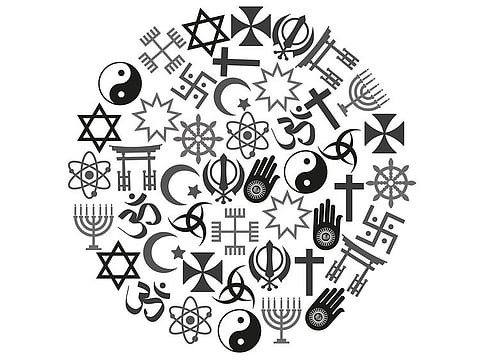Media needs to foster positive conversation on faith
News media must improve coverage of religions as it affects life and culture on the planet

Are you satisfied with the coverage of religion, faith, and spirituality in the media? These were some of the questions asked all over globe to the people, including editors of prominent media groups.
Faith and Media Initiative (FAMI), a global organisation did a groundbreaking study of attitudes and perceptions regarding faith and religion in the media, and the results were no short of astounding.
Dritan Nesho, of HarrisX, who lead the survey, says, “It’s a first of its kind study on how faith and religion is treated by the news media. We conducted close to 9,500 interviews in 18 different countries in all six continents around the world. The study was administered in the top six global languages including in English, Spanish, Hindi and Chinese.”
The survey brought out emphatically that people who believe in God are quite unhappy with the global media’s attitudes while reporting religion.
The coverage perpetuates stereotypes for sure. It found that 78% believe such stereotypes need to be corrected and must get the same or more attention, just like gender and race.
When it comes to the coverage of religions, there is a big issue when it comes to getting eloquent spokespersons of various faiths. More than 80% of those polled demanded better spokespersons of faith. Around 53% people said the media actively ignores religion as an important aspect of society and culture.
In India and UAE, for instance, 99% of people polled said they believed in religion. Close to 56% of Indian people and 53% of UAE people claimed that they follow religion-related news regularly in different media sources.
Brooke Zaugg of FAMI says, “What surprised me was the 82% people of faith say that they believe that faith needed to be covered well and media must be held accountable.”
David Miller, teacher at Princeton University of Faith and work initiative and a thought leader, was present at the launch of this global survey in New York.
He said, “This survey is probably one of the widest and deepest international studies on faith and media that has ever been undertaken, so that alone is exciting. One conclusion I, as a former investment banker, have is that the news publishers and editors should invest in coverage of religion and how it affects daily life because there’s a huge market for it. Over 82% of the world’s population want more of this at a quality level and not just the sensational coverage.”
Miller added, “It’s not a new finding that people believe in God on this planet. We go back to the beginning of time, I think humanity has always been interested in ‘is there something bigger than us’. But, the survey tells us people are dissatisfied with coverage of religious matters.”
The improper coverage of the religions issues is problematic all over world. In India recently, when movie star Shahrukh Khan performed a certain Islamic ritual “phoonk” (blowing air) at singer Lata Mangeshkar’s funeral, there was unnecessary uproar by those who had no clue about the Islamic practise.
Structural issues
Alissa Wilkinson, culture critic of Vox says, “There are structural issues about covering religion. American newsrooms are being cut in size and so often religion coverage is considered “extra”. We don’t need that. So that creates a problem where all stories related to religion get covered through prism of politics or through crisis of various kinds. People’s mistrust in journalism has a lot to do with just the way the business is going.”
Alissa thinks people are so much unaware of each other’s religion. “This happens constantly with all kinds of religions. We often interpret religion and its followers through what we’ve been taught by movies and by TV. Like, when we see somebody praying, we just assume certain things. A lot of misunderstanding is wide in part because at least in America we don’t get taught anything about religion in school, at all, and so we don’t know what we are looking and those gaps can be due to our ignorance,” she reasoned.
The survey pointed out the urgency to improve media coverage of religion and faiths as it affects every aspect of people’s daily life and culture on the planet.
Ana M Mims, adviser in growth strategies, who is widely quoted and featured in publications such as The Wall Street Journal, Fortune, says people want more coverage of important spiritual, faith based, religious based information in the news.
“My own personal take on it is look, news organisations are businesses. They are there to make money. They are not philanthropic organisations and when you think about the fact that they are business organisations and then based on this study, for the first time we can see 85% of the world says, ‘I’m affiliated with a faith’, then you know well that your business can have access to 85% of some group in the market. So, it would be foolish not to take advantage of that. So I see it as the very embryonic start of what DEI (diversity, equity and inclusion) used to be for culture and for women. I think it’s the role of media to present both.”
Sign up for the Daily Briefing
Get the latest news and updates straight to your inbox



